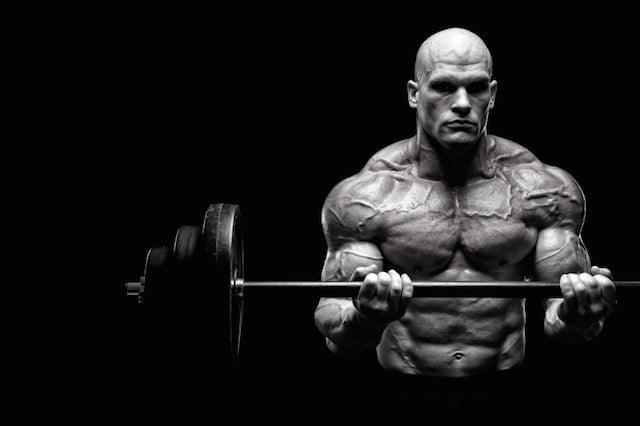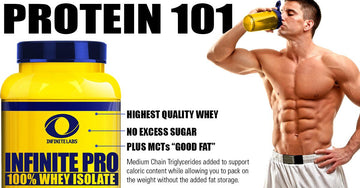

Ketogenic Diet Can Benefit Strength Athletes
Table of Contents
Ketogenic Diet Can Benefit Strength Athletes
Ketogenic diets have long been used in the strength training world. Bodybuilders, powerlifters, Olympic lifters, and wrestlers have all made use of ketogenic diets for years to make to drop weight for a competition without any detrimental effects on performance. A recent review by Franchini and coworkers showed that rapid weight loss has a high prevalence in sports such as wrestling (60%-90%). Another study reported a similar percentage in combat sports such as judo athletes (62.8%), jujitsu (56.8%), karate (70.8%), and taekwondo (63.3%).
A ketogenic diet is very low in carbohydrates, high in healthy fats (~70%) and provides an adequate amount of protein. The principle foundation of a ketogenic diet to force the body into ketosis. Ketosis is a physiological state where the body burns fats instead of carbohydrates as a energy source.
A recent review paper published in the Journal of Exercise in Sport Sciences Reviews titled, “The Ketogenic Diet and Sport: A Possible Marriage?” reports the benefits of a ketogenic diet in some sports, especially power sports requiring weight loss. The review paper talks about the biochemistry of ketogenic diets and how athletes often have to have a rapid weight loss for a competition.
Some of the common techniques used to make weight are: ‘crash’’ diets with extreme energy restriction, dehydration attempts, sauna suits, and use of pharmaceuticals such as diuretics. Biochemical, physiological, and observational studies also provide good evidence that an actual KD (i.e., where adherence is checked) can lead to fat loss with little or no loss of muscle mass.

Surprisingly, there is only one study, which has reported that compared with a standard ad libitum diet, a 30-day ketogenic diet did not affect explosive and strength performance negatively in a group of high-level gymnasts. In the study, 9 elite male gymnasts from Italy were recruited and placed on a very low carbohydrate ketogenic diet. Tests included hanging leg raises, push ups, parallel bar dips, pull ups, squats jumps, countermovement jumps and 30 secs of continuous jumping. The athletes in the study average training volume was 30 hours/week. The diet provided was 54.8% fat, 40.7% protein and 4.5% carbohydrate with all vitamins and minerals accounted for to ensure proper nutrition. The modified ketogenic diet was mostly made up of beef, veal, poultry, fish, raw and cooked green vegetables without restriction, cold cuts (dried beef, carpaccio, and cured ham), eggs, and cheese (such as parmesan). The drinks allowed were infusion tea, moka coffee and herbal extracts. The foods and drinks that athletes avoided on the ketogenic diet included alcohol, bread, pasta, rice, milk, yogurt, soluble tea, and barley coffee. However, comparison of measurements before and after the ketogenic diet shows a significant reduction in body weight, fat mass, and fat percentage, and an increase in lean body mass percentage. This indicates that many athletes concerned either about aesthetics or weight categories can use a properly controlled ketogenic diet and after adaptation, perform at their normal levels of function while losing weight through macronutrient manipulation.
The key point that the author made in the review paper is an energy sufficiency while with a very low carbohydrate intake, but this is compatible entirely with normal protein consumption and a rich nutrition providing full complements of micronutrients and essential macronutrients.The ketogenic diet is used widely as a weight loss strategy and, more rarely, as therapy for some diseases. In many sports, weight control is often necessary (boxing, weightlifting, wrestling, etc.), but the ketogenic diet usually is not considered. The ketogenic diet might be used to achieve fat loss without affecting strength/power performance negatively.
Paoli A, Bianco A, Grimaldi KA. The Ketogenic Diet and Sport: A Possible
Marriage? Exerc Sport Sci Rev. 2015 Jul;43(3):153-62.
Franchini E, Brito CJ, Artioli GG. Weight loss in combat sports: physiological,
psychological and performance effects. J. Int. Soc. Sports Nutr.
2012; 9(1):52.
Brito CJ, Roas AFC, Brito ISS, Marins JCB, Co´rdova C, Franchini E.
Methods of body mass reduction by combat sport athletes. Int. J. Sport
Nutr. Exerc. Metab. 2012; 22(2):89Y97.
Jabekk PT, Moe IA, Meen HD, Tomten SE, Høstmark AT. Resistance
training in overweight women on a ketogenic diet conserved lean body
mass while reducing body fat. Nutr. Metab. (Lond.). 2010; 7:17.
Paoli A, Grimaldi K, D’Agostino D, et al. Ketogenic diet does not affect
strength performance in elite artistic gymnasts. J. Int. Soc. Sports Nutr.
2012; 9(1):34.

















